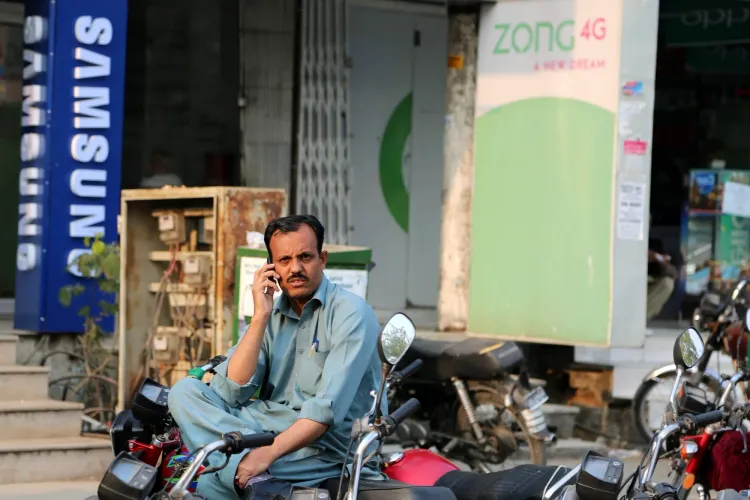Is Pakistan’s Shift Towards State Surveillance a Global Warning for Democracies?

Synopsis
Key Takeaways
- Pakistan is rapidly becoming a surveillance-driven state.
- Millions live under constant monitoring without consent.
- Human rights organizations are raising alarms over privacy violations.
- International leaders express concern over the implications for democracy.
- There is a pressing need for accountability from global tech companies.
Islamabad, Sep 20 (NationPress) The transition of Pakistan towards an authoritarian regime characterized by surveillance is not just a local issue; it acts as a significant alert to democracies around the globe, according to a report released on Saturday.
The report highlighted that millions lead their daily lives under the scrutiny of Pakistani authorities, lacking meaningful consent, oversight, or regulation, facilitated by a lucrative and mostly unaccountable international industry.
“Pakistan has become one of the most monitored societies globally, not by choice, but due to an intricate mass surveillance system that examines the digital and mobile activities of millions. This extensive framework—driven by a combination of local law enforcement and foreign technology—has received repeated warnings from human rights organizations and increasing condemnation from international leaders, who argue that it not only obliterates privacy but fundamentally erodes democracy and ethical standards,” the report from One World Outlook elaborated.
“Organizations like Amnesty International, Human Rights Watch, and local digital rights groups have clearly stated that these surveillance methods violate not just Pakistan’s constitution (which guarantees the right to privacy under Article 14) but also various international human rights treaties,” it noted.
The report emphasized that the core of the indignation lies in the total absence of transparency and public consent: citizens are largely oblivious to the extent of surveillance, while foreign suppliers seldom disclose details regarding the scope of their contracts or the application of their technologies.
According to the report, while Western companies are implicated in the establishment of Pakistan’s surveillance framework, numerous global political leaders and watchdogs have criticized this trend towards digital authoritarianism.
“Surveillance without oversight is not security but tyranny,” warns a report that has been widely referenced in Western media discussions on the matter.
The report claimed that with China acting as both a model and technology provider, Western diplomats and UN-appointed digital rights experts have expressed alarm, claiming that “If vulnerable democracies like Pakistan adopt a Chinese-style model of digital authoritarianism, it sends a message to other nations that repression can be imported and democracy can be circumvented.”
Despite this, the report indicated that as of 2025, few tangible sanctions or trade restrictions have been implemented, while many Western enterprises remain deeply entrenched in these networks.
“The urgent calls from Amnesty International, Human Rights Watch, and other advocates for rights and democracy are clear: global tech companies, foreign governments, and Pakistani authorities must be held accountable for violations, and the widespread infringement of privacy must cease—before the darkness extends further,” the report underscored.









